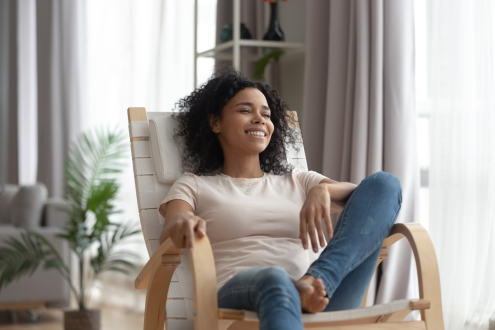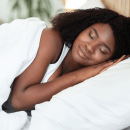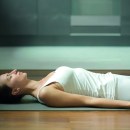Solve your sleep problems: Dossier special
Are you struggling with insomnia or waking up in the night with disrupted sleeping patterns? Getting enough sleep is critical for our physical and emotional wellbeing. Learn more about the science of sleep and the stories we tell our ourselves that keep us awake at night in this special dossier report...
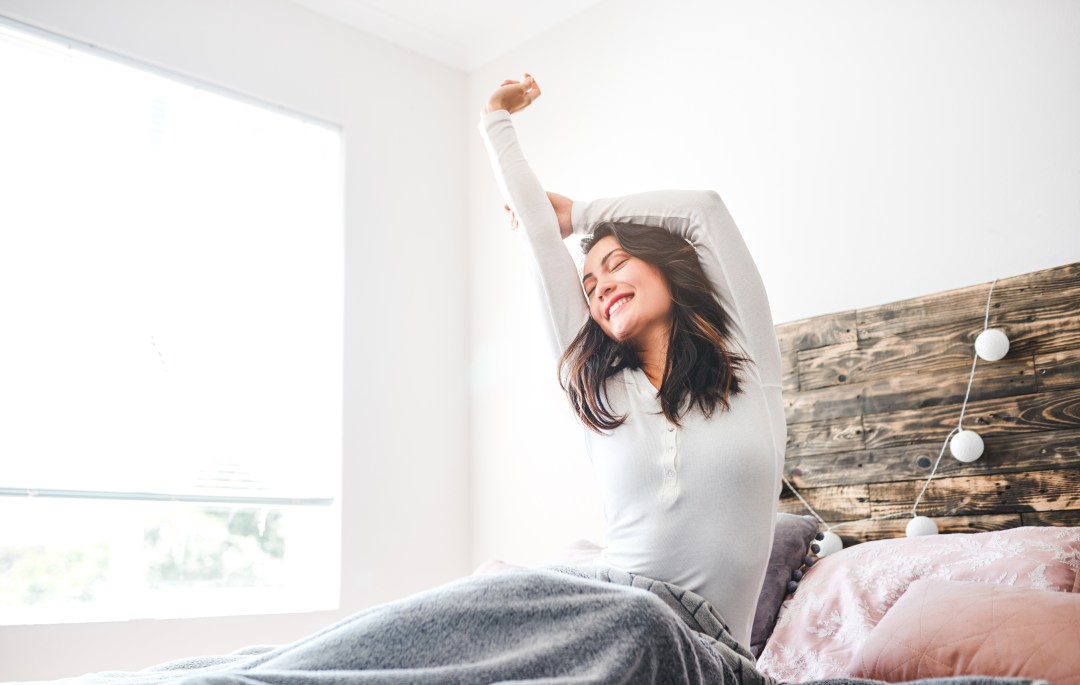
Part One: You are not alone
If you have been suffering from sleep problems since the onset of the pandemic, take comfort in the fact that you are not alone. The phenomenon has been so widespread that experts have even come up with a name for it – coronasomnia. Research reveals that the number of people battling insomnia rose from one in six pre-Covid to one in four – and women are struggling in particular.
A break with our long-held routines and the blurring of boundaries between work and home – not to mention heightened anxiety about the virus – have all contributed to our collective tossing and turning into the wee hours. The study from the University of Southampton also concludes that women were more vulnerable to sleep deprivation during lockdown. The proportion of women losing sleep before the virus was 19 per cent, rising to 31 per cent during the pandemic, while the number of men reporting sleep loss increased from 12 to 16.5 per cent.
‘I’ve had a huge influx of people coming to see me post-Covid,’ says Stephanie Romiszewski, a sleep physiologist. ‘Our sleep is an adaptive process because our brains are so smart. When there’s a change, such as not commuting or walking around as we’re used to, our sleep has to adapt too. Not to mention that we’ve all been watching more news, so the usual worries that plague us were eclipsed by global anxiety.’
Changes in our sleep patterns are normal
The reassuring thing to remember, says Romiszewski, is that changes in our sleep patterns are normal, no matter the cause. ‘Sleep is complex. It’s not just about mindset – it’s affected by many things, including light exposure, eating at regular intervals, the energy you expend and how much social time you get with friends. It’s pointless trying to control all the variables – we’re not robots.’
“A change in routine moves you away from your natural sleep timing and, the more you do that, the more likely you are to have chronic sleep problems”
When we believe we’re not getting enough shut-eye, we worry and start to change our behaviour in an attempt to rectify matters. We cry off the gym and cancel the night out with friends in favour of a relaxing bath. ‘The trouble is that a change in routine moves you away from your natural sleep timing and, the more you do that, the more likely you are to have chronic sleep problems,’ says Romiszewski. She believes going out with friends – provided you do not overdo it with alcohol – is likely to help your sleep because you’ll be feeling happy, relaxed and reassured.
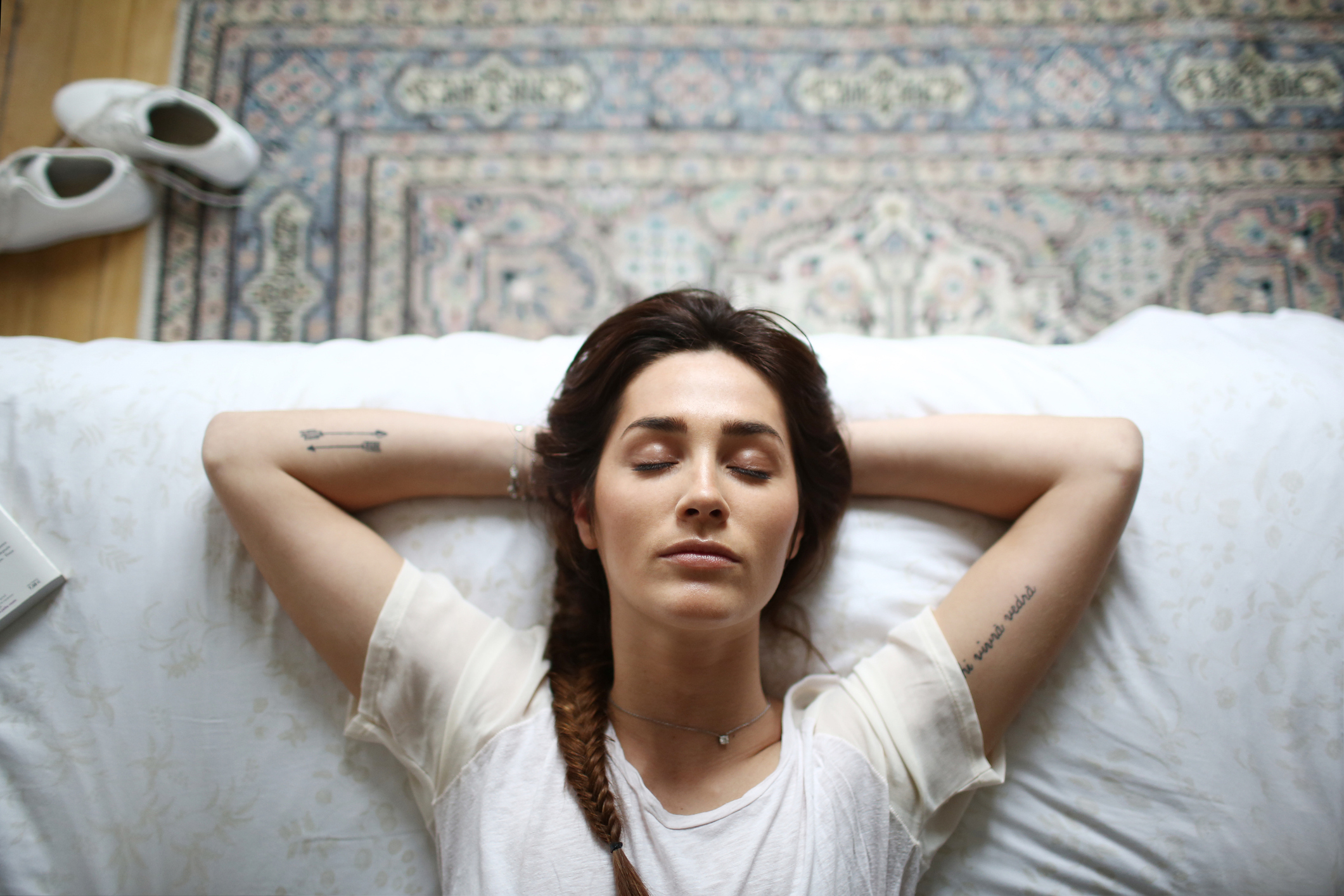
Part 2: Busting common sleep myths
The first step in tackling our poor sleep and getting the rest we need is to become better educated and dispel the myths that may be hindering us.
Myth 1 – Napping during the day is the best remedy for a sleepless night
If you’ve had a bad night’s sleep, it can be inviting to have a cheeky forty winks, particularly on a Sunday afternoon after a glass of wine and a satisfying lunch. Surely this is a blissful way to catch up on lost sleep?
‘The thing to remember is that human beings are routine-based – we are basically a bunch of walking clocks!’ says Heather Darwall-Smith, the author of The Science Of Sleep. ‘One big issue during lockdown was that our rhythms got out of whack. There was no boundary between work and home – everything merged.’ In other words, napping adds further confusion. ‘If you are waking up several times a night, your sleep is fragmented and its quality is poor. Napping only exacerbates the fragmentary cycle. The goal should be having all our sleep at once at a consistent time,’ says Darwall-Smith.
Naps can help some people, however, as long as they are not having chronic sleep problems. ‘If you are an older person or someone suffering from chronic pain and you’ve slept poorly one night, a nap can be a useful top-up. But nothing more than 30 minutes – if you go into a deep sleep state, you will feel groggy when you come out of it, rather than refreshed and well rested,’ explains Darwall-Smith.
Another exception to the no-nap rule is if you have a baby or small children keeping you up at night. ‘This is different because your lack of sleep is down to something actively getting in the way. That’s actually the best sleep problem to have,’ says sleep physiologist Stephanie Romiszewski. ‘Napping during the day can help, even though it’s not ideal. Having young kids can be hard, but remind yourself that they aren’t going to be keeping you up forever.’
Myth 2 – Going to bed early is the answer
It might sound counterintuitive but, if you’re sleeping poorly, then hitting the pillow an hour earlier is rarely the solution. ‘Whatever the trigger, once poor sleep has happened, your body clock is out of sync,’ says Kathryn Pinkham, a psychologist who runs a Cognitive Behavioural Therapy for insomnia (CBT-i) clinic. ‘We need to wipe the slate clean and educate the body again. The first step is to create a stronger appetite for sleep and programme your body to understand that you want to sleep for seven or eight hours straight.’
For most of us, we can quickly become neurotic about not getting enough sleep. It only needs to happen for a night or two and The Fear descends. ‘Anxiety kickstarts the fight or flight response and, before you know it, your bed has become the cue for that. What you need to do is spend less time in bed ,’ says Pinkham. She explains that the difference between regular CBT and CBT-i is that the former will treat the anxiety arising from insomnia but it might not address the problems with sleep specifically.
“People go to their room at 9pm – but 10 hours in bed is too much. The more vigilant we are about what time it is, the less likely we are to sleep”
The remedy is only to go to bed when you feel tired enough to sleep. ‘People tell me they do yoga before bed, have a bath or light a candle and go up to their room at 9pm… But 10 hours in bed is probably way too much. The body knows it doesn’t need that much sleep but it has to do something with the time, so it takes ages to get to sleep. The more vigilant we become about what time it is, the less likely we are to get to sleep,’ she says.
Myth 3 – When you wake up in the middle of the night, stay in bed and sleep will come
A frequent issue once your sleep pattern is disrupted is waking with a jolt at exactly the same time in the depths of the night. Anxiety kicks in, compounded by the inability to get back to sleep. It is tempting to stay in bed in the hope that you will fall sleep again, but that’s not the answer.
‘Waking up at the same time every night is a sign that you have trained your internal clock to wake up. When you look at the actual clock, you are confirming that, yes, your body has done the right thing by waking you at 3.13am,’ says Pinkham. ‘Not only does it create a pattern of waking to check the time, it also triggers a fight or flight response.’
When you wake up, don’t look at the clock. Instead, get out of bed and go into another room and read or listen to an audiobook. ‘Change the emotional state you’re in,’ advises Pinkham. ‘As soon as you feel sleepy again, go back to bed. And, above all, do not be tempted to set your alarm for a later wake-up to recover your sleep debt!’
She also suggests that you schedule time on a daily basis to put down your anxieties on paper. ‘Spend 20 minutes writing about all the stuff on your mind. Identify which of the issues you can deal with and make a plan for each one. Also consider the items that are hypothetical worries. Acknowledge that it’s OK to think about these, but realise that it’s not possible to control tomorrow. Let them go. The aim is to ensure that bed is no longer the place for worry because you are addressing these issues during the day.’
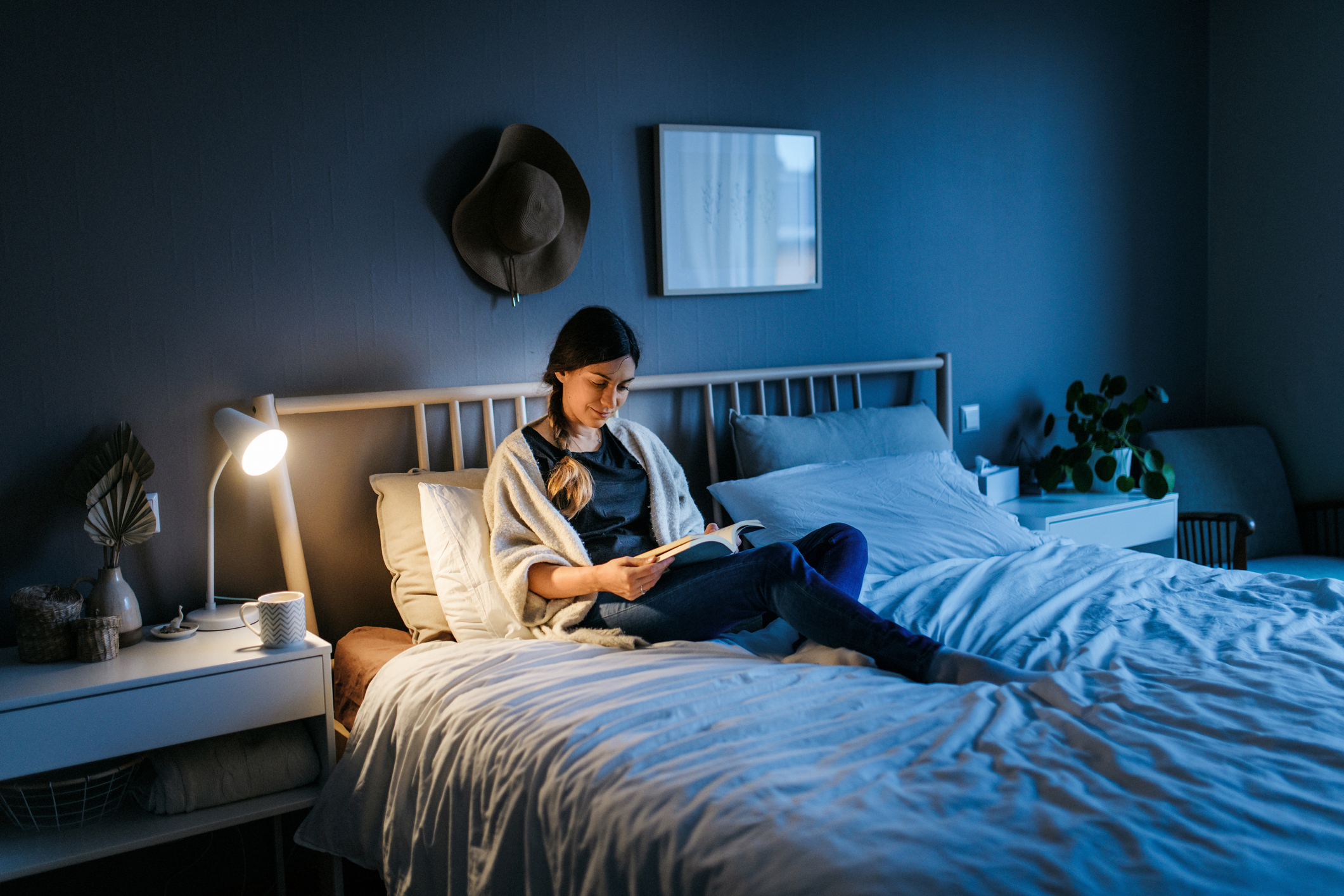
Myth 4 – Your evening routine is the most important factor
We’ve been taught from childhood about the importance of getting ready for bed in the right way, whether with a warm bath, reading a book or having a cup of cocoa or camomile tea. It’s therefore a surprise to learn that the most impactful time for setting a new sleep routine is the first hour of the day, and not the last.
‘We’re all obsessing over anxiety reduction and relaxation but, while those things are great for general wellbeing, they won’t fix a sleep problem,’ says Romiszewski, who believes a strong morning regime is key.
‘Wake up at the same time every morning, even on weekends. Every day for the next three weeks, set your alarm for 6am. If you can expose yourself to bright light – either outside or with a full-spectrum lamp – you will notice that you feel wide awake more quickly. Get some form of gentle exercise and then eat.
Do something you love, such as dancing or listening to your favourite podcast. You will not only feel so much better, you’ll be amazed what a difference it makes to your sleep cycle – far better than any complicated evening regime.’
Myth 5 – Your partner is the cause of your wakefulness
If you have a bedmate who snores, talks in their sleep or has sleep apnoea, a more serious condition that causes them to gasp for breath while sleeping, you might seethe with resentment and view them as the source of your sleeplessness. ‘If only you would get your problem sorted out, I would sleep well,’ you may grumble.
But experts don’t encourage blaming another person or dragging an unwilling partner to the doctor (although sleep apnoea needs medical attention). ‘If you were a good sleeper, it’s unlikely your sleep would be so disrupted by external sounds,’ says Romiszewski. ‘When a person is suffering from insomnia, they become more sensitive to being woken by environmental triggers – and that’s probably what is happening to you.’
“Humans are not designed to sleep together… Research points to the fact that couples who sleep apart have more sex and better marriages”
Her approach would be to treat the sleep-deprived person, not the snorer. ‘I would start by boosting the quality of your sleep. Obviously, if the snorer recognises that they have a problem and will seek help, that is great – but it can be hard to change another person.’ The other potential remedy she suggests, which sounds obvious but comes with a good deal of stigma, is to try separate bedrooms if possible.
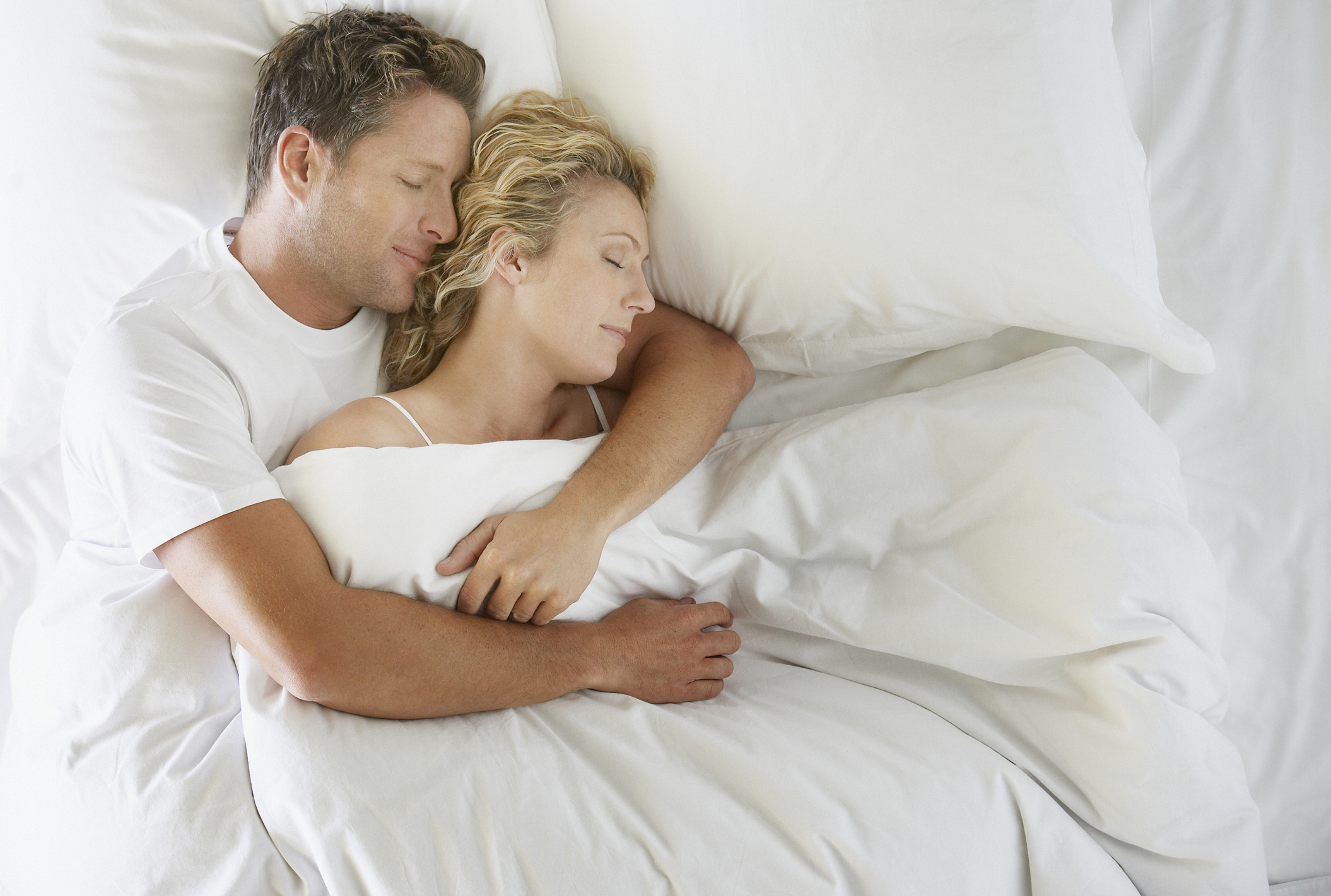 ‘Humans are not designed to sleep together. People tend to feel bad about not sleeping in the same bed but research points to the fact that couples who sleep apart have more sex and better marriages. Why are we forcing everyone to do the same thing?’ Rimoszewski explains that everyone has a different circadian rhythm – in fact, couples consult her to have their out-of-sync sleep patterns aligned. This involves one person changing their exposure to light and other behaviour, making separate beds sound like a far easier option!
‘Humans are not designed to sleep together. People tend to feel bad about not sleeping in the same bed but research points to the fact that couples who sleep apart have more sex and better marriages. Why are we forcing everyone to do the same thing?’ Rimoszewski explains that everyone has a different circadian rhythm – in fact, couples consult her to have their out-of-sync sleep patterns aligned. This involves one person changing their exposure to light and other behaviour, making separate beds sound like a far easier option!
Myth 6 – Eight hours a night is the perfect amount
A major stumbling block to getting enough sleep is the oft-quoted magic number of eight hours – so it’s reassuring to hear that many people don’t need that much at all.
Probably the most famous example of this was Margaret Thatcher, who claimed to thrive on four hours a night. ‘People’s sleep needs are different,’ says Darwall-Smith. ‘You may need seven, I may need nine… Different life stages are a factor too,’ she says. Older people tend to have lighter sleep, while teenagers need more than most. Our sleep requirements change throughout life. ‘This idea of eight hours causes anxiety for people. They come into my clinic and say: “I’ve got insomnia – I’m not getting eight hours a night.” The truth is that they may not need it,’ says Darwall-Smith.
Myth 7 – Sleep trackers are the best way to ensure a good night’s sleep
In our digital world, we can be duped into thinking that the solution to poor sleep can be ‘hacked’ by technology. Devices claim to offer a sophisticated analysis of time spent in various sleep phases but, if you struggle to sleep, they may do more harm than good.
‘I don’t see the point of sleep-tracking devices,’ says Pinkham. ‘If you already know you don’t sleep well, all a tracker is going to do is prove how bad things are. There is even a condition known as orthosomnia in which sufferers become obsessed with getting the perfect night’s sleep.’
The danger with sleep tracking is that it might cause you to alter your behaviour to compensate for perceived poor sleep. ‘Someone might say “my device shows I had fragmented sleep last night, so I won’t go to the gym later in case I feel exhausted”. Had you not been given that sleep data, you’d have listened to your body,’ says Pinkham. ‘You can’t micromanage sleep stages either. People come to see me saying, “Look! I’m not getting enough REM (dreaming) sleep.” So what? And is the device accurate?’
![]() A better form of self-monitoring might be to keep a sleep diary, suggests Darwall-Smith. ‘For two weeks, note down not just what time you go to bed and get up, but also how much caffeine or alcohol you had and at what time, what you ate and how much exercise you took. You might notice that something specific triggered poor sleep, such as doing a high-intensity workout at 7pm, which meant you went to bed with an elevated heart rate.
A better form of self-monitoring might be to keep a sleep diary, suggests Darwall-Smith. ‘For two weeks, note down not just what time you go to bed and get up, but also how much caffeine or alcohol you had and at what time, what you ate and how much exercise you took. You might notice that something specific triggered poor sleep, such as doing a high-intensity workout at 7pm, which meant you went to bed with an elevated heart rate.
Also do a bit of life tracking. What’s on your mind – are you worrying about discussing a matter with a colleague? Did something specific come up during the day? This will provide evidence for what’s affecting your sleep.’
Part 3: Sleep maths: Calculate your perfect number
There is a practical way to establish how much sleep you require. It takes effort but could give you documented clarity on your body’s needs.
Part 4: Case study
Pip Payne, 40, a food writer from Devon, found that stress played havoc with her sleep patterns when the pandemic hit. Here’s how she achieved balance and better rest…
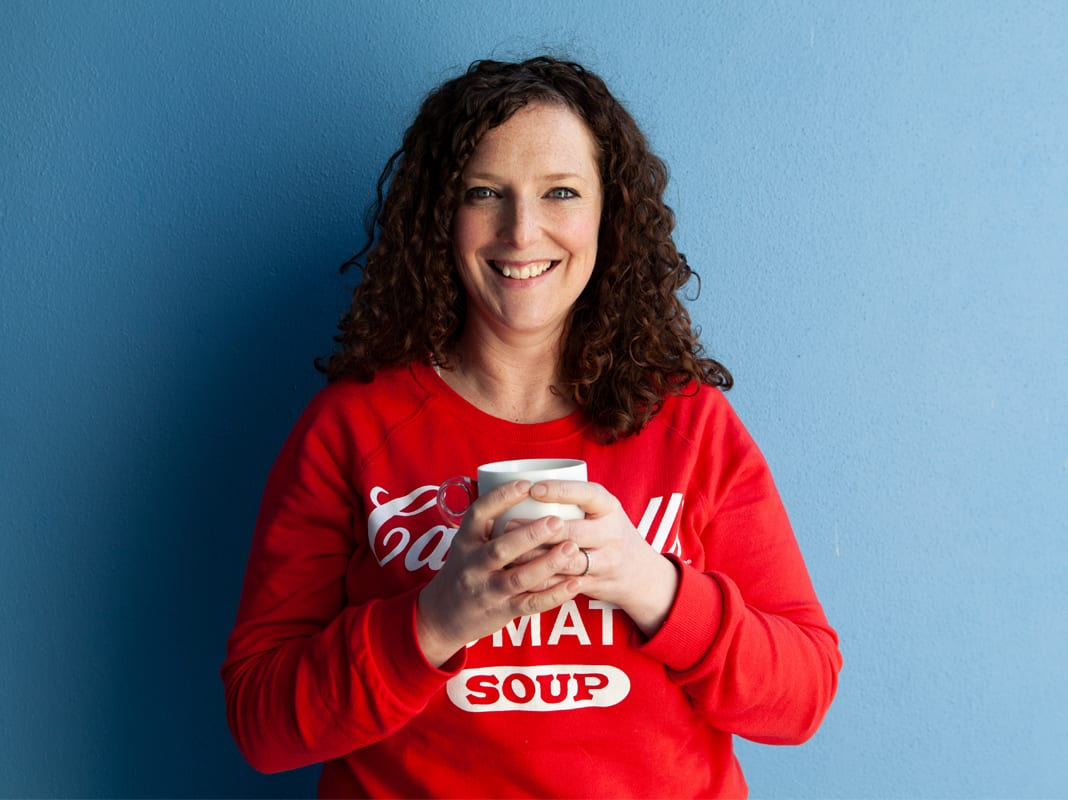 Being self-employed, I’ve had times when work worries disrupted my sleep – but nothing could prepare me for the stress of last year when the pandemic started. I’d just signed a contract for my first cookbook, and the deadline to write and test more than 100 recipes was only five months away. However, I also faced homeschooling my two daughters, Miette, 11, and Marlie, eight. My husband, Darren, was poorly with suspected Covid-19, and his work as a cameraman dried up overnight.
Being self-employed, I’ve had times when work worries disrupted my sleep – but nothing could prepare me for the stress of last year when the pandemic started. I’d just signed a contract for my first cookbook, and the deadline to write and test more than 100 recipes was only five months away. However, I also faced homeschooling my two daughters, Miette, 11, and Marlie, eight. My husband, Darren, was poorly with suspected Covid-19, and his work as a cameraman dried up overnight.
The pressure of all this, combined with my fears about our financial situation, meant that I was struggling to fall asleep. Every night, my heart and mind raced. Then I’d wake up at 3am, unable to stop worrying. My tiredness had a negative impact on my wellbeing and our family life. My temper was short with the girls and I felt constantly on edge. Desperate to get some rest, I looked at ways to relax and improve my sleep quality.
One of the main things that helped was cutting out alcohol. We were drinking wine in the evenings as a treat, but I realised it was one of the things causing my heart to race. It made me grumpy the following day too. Stopping drinking significantly helped the night-time anxiety and I woke up feeling more positive.
I also put down my phone at night. Part of my job is running my social media channels, so I spend a lot of time on it and the temptation to engage with social media at bedtime was great.
Rediscovering my love of reading was another revelation. It was ages since I’d picked up a book at bedtime, so I bought some new fiction and committed to enjoying it for an hour before lights out. This was so helpful – it relaxed me and distracted my mind from my worries.
These days, things are much better, even though life throws me the occasional worry. I’m currently writing my second book, so I have given up alcohol again to make sure I’m fully rested and able to give it my all. It’s amazing what a difference a small change can make to your sleep – and your life.
‘The Slimming Foodie’ by Pip Payne (Octopus, £20) is out now.
Expert advice
Stephanie Romiszewski, a sleep physiologist, has worked in NHS clinical sleep disorder centres across the UK. She was the sleep expert in Channel 4’s ‘Secrets Of Sleep’ series.
Heather Darwall-Smith is a mindfulness-based psychotherapist specialising in sleep. She is the author ‘The Science Of Sleep’ (Dorling Kindersley, £14.99).
More inspiration
Read: Tips for settling down for a good night’s sleep by Beverly Landais
Photos: Getty Images
Words by: Stephanie Romiszewski and Alex Lloyd


